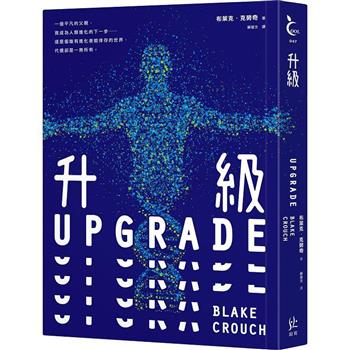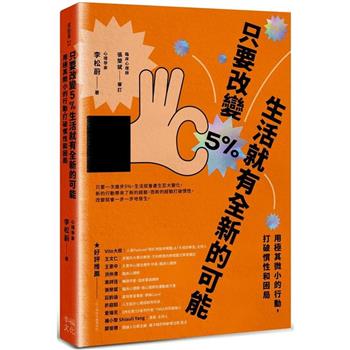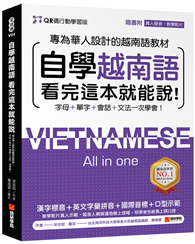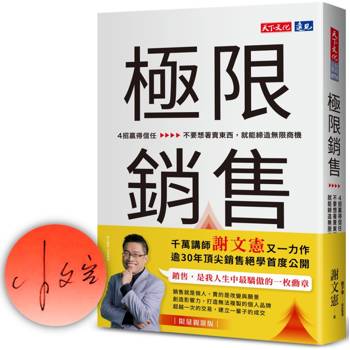| FindBook |
有 1 項符合
Blazing a Trail When The Road Ends的圖書 |
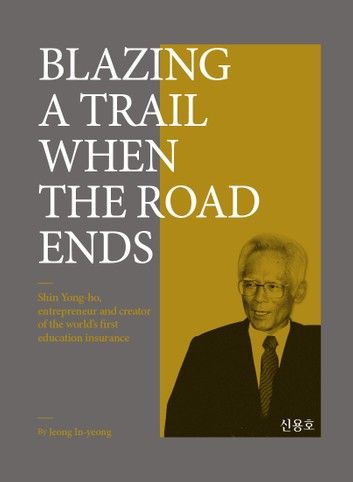 |
Blazing a Trail When The Road Ends 作者:Jeong In-yeong 出版社:Seoul Selection 出版日期:2018-03-13 語言:英文 |
| 圖書館借閱 |
| 國家圖書館 | 全國圖書書目資訊網 | 國立公共資訊圖書館 | 電子書服務平台 | MetaCat 跨館整合查詢 |
| 臺北市立圖書館 | 新北市立圖書館 | 基隆市公共圖書館 | 桃園市立圖書館 | 新竹縣公共圖書館 |
| 苗栗縣立圖書館 | 臺中市立圖書館 | 彰化縣公共圖書館 | 南投縣文化局 | 雲林縣公共圖書館 |
| 嘉義縣圖書館 | 臺南市立圖書館 | 高雄市立圖書館 | 屏東縣公共圖書館 | 宜蘭縣公共圖書館 |
| 花蓮縣文化局 | 臺東縣文化處 |
|
|
Shin Yong-ho: a great entrepreneur who used his success in business as a springboard for aiding the development of his country
and the future of his people
• The turbulent life and times of a towering figure in South Korea’s insurance industry
• The narrative of Shin’s entire life, including his struggle with illness as a child, his dream of becoming a “capitalist for the Korean people” as a young man, and his establishment of one of Korea’s finest corporations in his prime
• Shin’s endless creativity and ambition show us the wisdom and courage we need in our lives
About the book
This book tells the life story of Shin Yong-ho, who founded and built Kyobo Life Insurance, Kyobo Book Centre, and the Daesan Foundation. Shin contracted a terrible illness in his childhood, and by the time he had recovered, it was too late to go to school. Despite missing his chance to receive a formal education, he taught himself through a thousand-day reading project and through hands-on learning. After heading to Seoul by himself at the age of twenty, he moved to China and built a company from scratch. Meanwhile, a meeting with the patriotic poet Yi Yuk-sa inspired him to support the independence movement and pursue his ambition of becoming a capitalist for the Korean people. At the end of World War II, Shin returned to Korea penniless, but he kept his spirits strong and with a great deal of effort invented the concept of education insurance to satisfy Koreans’ thirst for learning. His decision to establish Kyobo Book Centre under the slogan “People make books, and books make people” in the middle of Gwanghwamun in downtown Seoul illustrates his passion for promoting national education and the way he put that into practice. Shin was unstinting in his support of public interest projects, and he established the Daesan Foundation to contribute to the development and globalization of Korean literature, along with the Daesan Agricultural Foundation (originally the Daesan Foundation for Rural Culture and Society) and the Kyobo Foundation for Education. It was Shin, with his profound knowledge of literature, who suggested putting up a billboard at Gwanghwamun (this became known as the Gwanghwamun Geulpan) to carry messages of comfort and hope for the busy pedestrians crossing that intersection. All this sprang from the insight that Shin gained by carefully examining each situation from all possible angles.
Shin was a great entrepreneur who did not content himself with business success and never stopped striving for the development of his country and the future of his people. He was given the John S. Bickley Founder’s Award, which is regarded as the Nobel Prize in the field of insurance; he was named the Insurance Mentor; and he became the first businessperson to be awarded the Geumgwan (Golden Crown) Order of Cultural Merit. The endless creativity and ambition evident in Shin’s life teach us the wisdom and courage that we need in our own.
The can-do spirit that blazed a trail in the wilderness
Shin managed to survive the illness he suffered during his childhood on the slopes of Mt Wolchulsan, but he missed his chance to obtain a formal education, never attending elementary or middle school. Even so, his thousand-day reading project and hands-on learning served as an effective way to study and develop his talents. His self-study at this time gave him an unbreakable will. After training his intellect and realizing his dreams, Shin struck out for Seoul at the tender age of twenty and then continued to the Chinese city of Dalian (then Dairen) by himself. This was his first step toward becoming a businessman dedicated to the good of his nation and people. In China, he achieved financial success by developing a new sales system. After meeting the patriotic poet Yi Yuk-sa, Shin supported the independence movement and set a new goal of helping Koreans by becoming a capitalist for the people. His meeting with Yi proved to be a turning point in Shin’s life, and he made up his mind to become a successful businessperson in China even as he cherished more lofty ambitions. Within a few years, Shin had established a grain company called Bukilgongsa in Beijing and put his company on the right track through his unique blend of hard work and creative thinking. Shin’s belief that he should have enough willpower to punch a hole in an oak tree hinted at the strength of his can-do spirit, which blazed a trail in the wilderness.
Examining each situation from all possible angles
The end of World War II threw China into turmoil, forcing Shin to return to Korea without a cent to his name. After that, he set up and ran companies in various fields, including publishing and silk weaving, but all of them went under. Despite this series of frustrations and failures, Shin always got back on his feet, like a coil that springs up each time it’s pushed down. At last, he realized that the only asset available to Koreans in the ashes of war was education. Instead of sinking into despair, Shin treated this crisis as an opportunity. Driven by his passion for education and drawing upon his past experience, he became the first person to combine education and insurance in 1958. He established Daehan Education Insurance (called Kyobo Life Insurance today) and began selling education insurance policies, which enabled students from poor families to stay in school and continue their education. Thanks to education insurance, countless students had the opportunity to learn and grew up to be the drivers of economic growth. This helped Shin achieve his goal of becoming a capitalist for the people, which was inspired by his meeting with Yi Yuk-sa.
People make books, and books make people
Shin’s philosophy about business and his view of life remain an ideal that we should strive for today. By opening Kyobo Book Centre in the middle of Gwanghwamun, Shin both took a step toward promoting education for Koreans and expressed his commitment to expanding the reading population and creating a cultural space for young people. Under its slogan “People make books, and books make people,” Kyobo Book Centre became a place where people could both relax and develop their intellect. The foundations that Shin established (the Daesan Foundation, for cultural advancement and the globalization of Korean literature; the Daesan Agriculture Foundation, which promotes the welfare of humanity through developing agriculture and rural areas; and the Kyobo Foundation for Education, which runs programs to support the environment and education) exemplified his business philosophy that a corporation’s ultimate goal is not making a profit but rather being socially responsible. It was Shin, the literary connoisseur, who suggested putting up a billboard at Gwanghwamun (the Gwanghwamun Geulpan) to carry messages of comfort and hope to the busy pedestrians crossing the intersection below. Shin remained active until his death at the age of 86 in 2003, demonstrating his passion for education and his commitment to cultural projects.
Blazing a Trail When the Road Ends is an exciting account of Shin’s life of endless creativity and ambition—his unusual childhood, his participation in the independence movement in his youth, his refusal to be discouraged by failure in his middle age, and his success turning Kyobo Life Insurance into one of the leading firms in the industry. The business philosophy and life values imparted by Shin will have a powerful impact on readers, teaching them the wisdom and courage they need in their lives.
|
